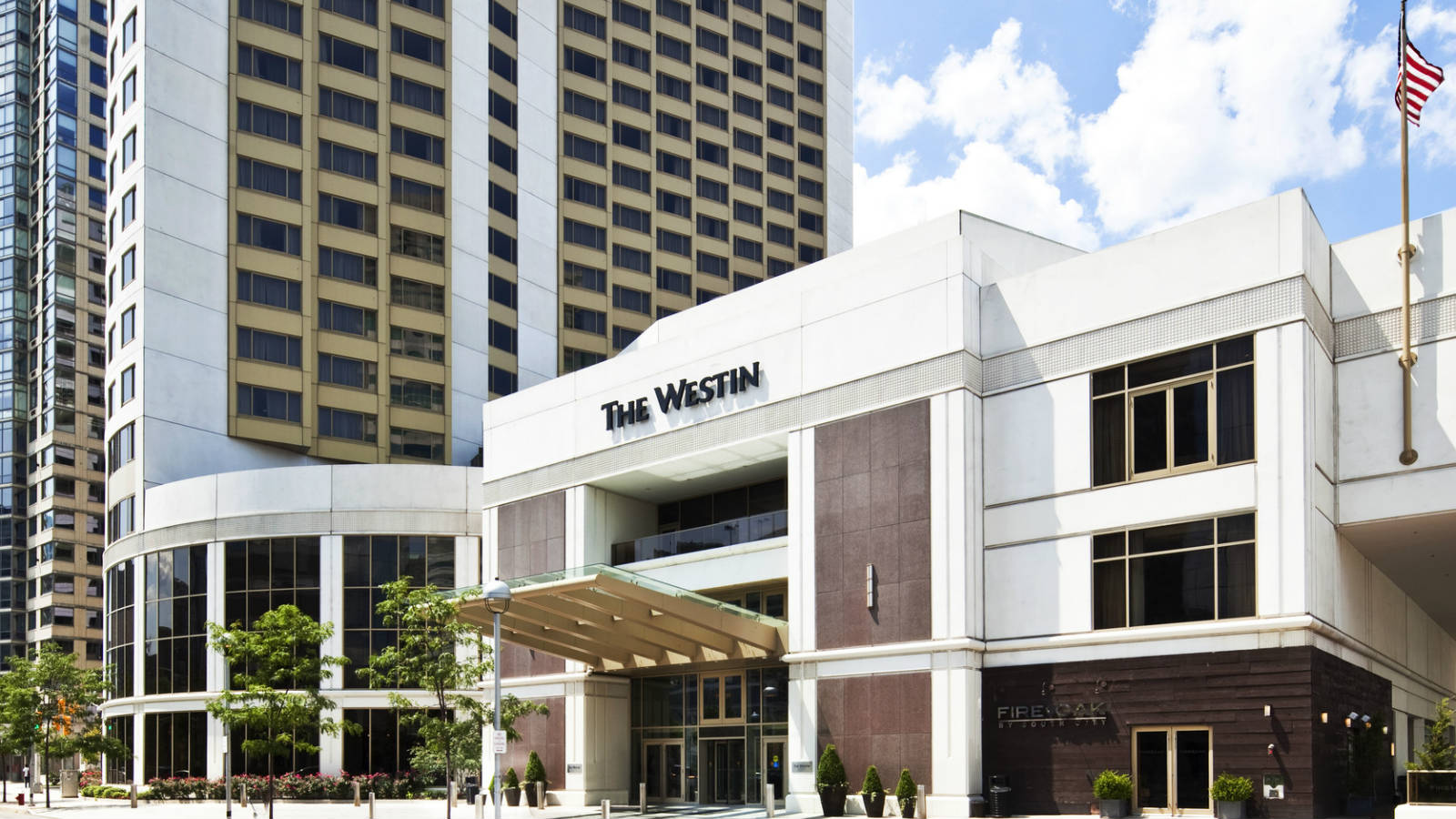Success Story: Westin
| Project Highlights | ||
| Total Project Cost | $2,158,229 |
 Starwood Hotels & Resorts is committed to reduce energy consumption by 30 percent per built hotel room by 2020 across all owned, managed and franchise hotels. |
| NJCEP Incentives | $600,000 through the Combined Heat & Power and Fuel Cell program | |
| Project Payback | 10.5 years | |
| Estimated Annual Savings | 367,209 kWh 91,198 therms $123,007 |
|
| Technologies
Three 100-kW gas-engine, inverter-based combined heat and power units, Two absorption chillers |
||
| Project information, savings and environmental benefits were provided by the project contact. | ||
|
Combined heat and power units at Jersey City hotel help Starwood Hotel reach corporate energy-efficiency goals Background Starwood Hotels & Resorts Worldwide, Inc. is one of the world’s leading hotel and leisure companies with brands including Westin®, Le Méridien® and Sheraton®. In 2009, Starwood launched an environmental sustainability program that pledged to reduce energy consumption by 30 percent and water consumption by 20 percent per built hotel room by 2020 — referred to as 30/20 by 20 — across all 1,200 of its owned, managed and franchise hotels. In 2013, the company added a goal to reduce greenhouse gas emissions by 30% within the same timeframe. As the number of properties within the Starwood portfolio grows each year, maintaining business growth while achieving the 30/20 by 20 goals requires continuous achievements in energy and water efficiencies. Initial projects such as the replacement of incandescent bulbs and installation of low-flow toilets were implemented across more than 80 percent of properties by 2013. Looking ahead, Starwood recognizes that more capital-intensive measures are needed, including the replacement of outdated equipment. The Westin Jersey City Newport is contributing toward the 30/20 by 20 goal by installing a combined heat and power (CHP) system, placing the hotel at the forefront of energy innovation. With the help of financial incentives from New Jersey’s Clean Energy Program™(NJCEP), the co-generation units provide hotel management with a cost-effective approach to energy efficiency, along with a significant reduction of the emission of harmful air pollutants. |
|
|
It’s through partnerships and programs like New Jersey’s energy-efficiency incentives that The Westin Jersey City Newport is better able to reduce its environmental impact, while saving money and supporting Starwood’s environmental goals to reduce energy and emissions each by 30 percent globally by 2020. Andrea Pinabell
The Westin
|
Solution The NJCEP Combined Heat & Power and Fuel Cells program is designed to enhance energy efficiency through on-site power generation that reduces existing and new demands on the electric power grid. Financial incentives are available to commercial and industrial customers installing CHP and fuel cells systems fueled by non-renewable sources, such as natural gas and hydrogen, or mixed-fuel sources including biogas and natural gas. As much as $3 million in incentives are available for qualifying projects that complete a 12-month performance verification. In 2015, The Westin Jersey City Newport qualified for the program by installing three Tecogen® Inc. 100-kW natural gas engine CHP units. The co-generation units are expected to produce 1,985 MWh of electricity and 132,962 therms of energy per year. During the winter months, heat from the CHP engines will be transferred to hot water boilers, helping to maintain even water temperatures and reduce the amount of energy needed to provide space heating and hot water throughout the building. In the summer, the heat will be transferred to two absorption-chiller units to provide about half of the hotel’s cooling needs. By incorporating the newly installed absorption chillers, the Westin project became a tri-generation system. The Tecogen co-generation units are fitted with emissions control technology to reduce greenhouse gas emissions and other air pollutants, as compared to traditional cogeneration technology. In addition, the units feature a permanent magnet generator and inverter that together provide hotel management with the capability to provide supplemental electricity in the event of a utility outage. Once power is restored, the hotel’s electricity loads are switched back to service by the utility. |
The Westin Jersey City Newport qualified for $600,000 in NJCEP incentives, covering more than 27 percent of the $2,158,229 project cost, which includes 10 years of maintenance service by the manufacturer. The co-generation units will save the hotel, on average, 367,209 kWh of electricity and 91,198 therms of natural gas per year, resulting in annual savings ranging from $123,007 to $212,000. With the NJCEP incentives, the project is expected to pay for itself within a decade. The payback period is even less when factoring in federal tax credits.
“Large-scale capital improvement projects like natural gas co-generation units are expensive but important undertakings for any given property,” said Andrea Pinabell, Vice President of Starwood Hotels & Resorts. “It’s through partnerships and programs like New Jersey’s energy-efficiency incentives that The Westin Jersey City Newport is better able to reduce its environmental impact, while saving money and supporting Starwood’s environmental goals to reduce energy and emissions each by 30 percent globally by 2020.”
More Information






.jpg)

